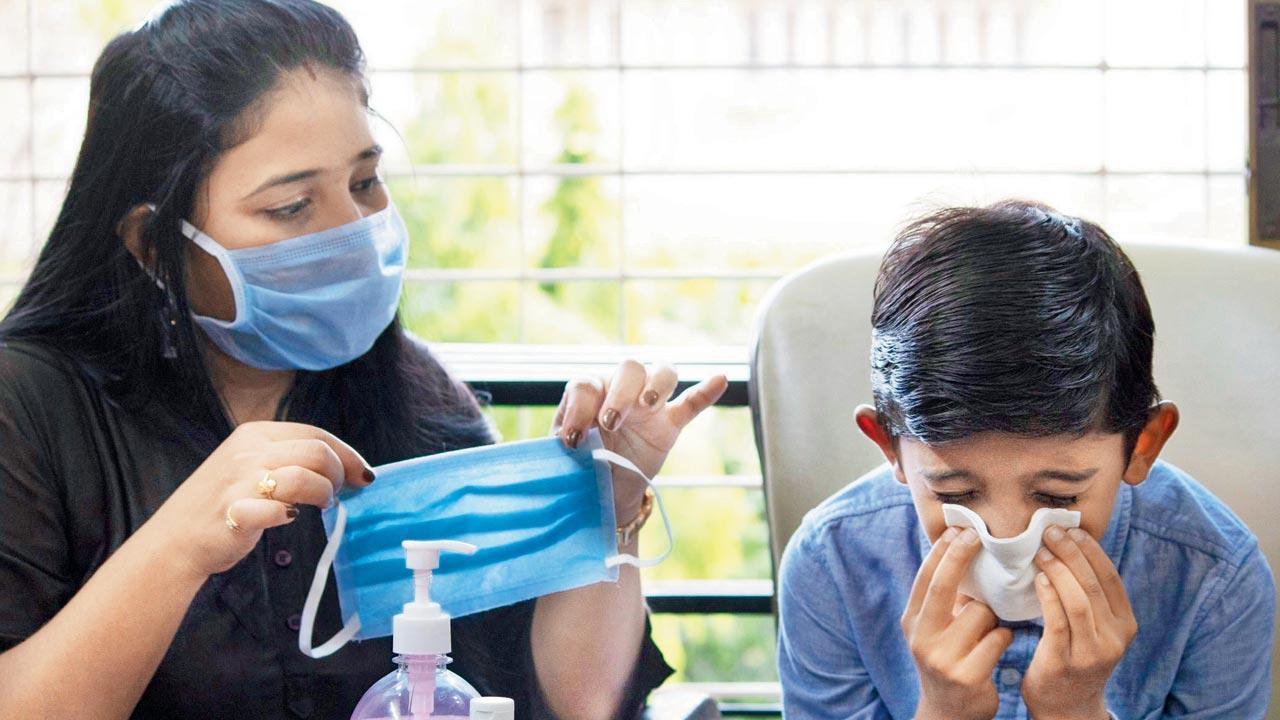With NeoCov, which is likely to have high death rate, becoming global concern, experts say new vaccine needed; stress on wearing masks

NeoCov is not a Covid-19 variant but is related to the 2012 MERS epidemic which had a high fatality rate. Representation pic
In view of the emergence of the new virus NeoCov, which has become an area of concern at the global level amid the annoying Covid-19 pandemic, healthcare experts have advised people to maintain all COVID protocol and not panic.
ADVERTISEMENT
The new strain of bat virus identified in South Africa, which WHO has dubbed as NeoCov, is different from Covid-19 viruses and calls for more research and study.
Not Covid-19, more like MERS
“NeoCov is named after Neoromicia, the species of bat that have been infected with another species of coronavirus. This is not SARS-CoV-2 or any of its variants. NeoCov is related to another bat virus, called Middle-East Respiratory Syndrome (MERS) coronavirus that appeared in an epidemic form in 2012 among camels and was transmitted easily to humans, and subsequently human-to-human, in Yemen, other Mediterranean countries, and South Korea. MERS killed about 768 people in different countries causing severe respiratory distress syndrome. Although no treatment or vaccines have yet been developed against MERS coronavirus so far, general treatment using monoclonal antibodies, interferon-alfa, and ribavirin did help to reduce deaths. The epidemic died off in 2012 when managed aggressively as a zoonotic disease along the same lines as the bird flu and SARS of 2003,” said Dr Subhash Hira, professor of Global Health at University of Washington-Seattle and an advisor to WHO-TDR-Geneva.
He added, “Due to the structural similarities of NeoCov and MERS, a high death rate is being extrapolated for NeoCov by some scientists. South Africa is once again on the target because NeoCov was isolated from bats in coves outside Pretoria by Chinese scientists belonging to Wuhan laboratories. While NeoCov is being closely monitored by WHO and member countries, global scare keeps emerging due to the current environment that is sensitive about bat viruses causing zoonotic diseases. We need to keep our guard up against all emerging infectious diseases, and be watchful of animals being used for dietary value.”
‘Don’t panic, be alert’
Dr Wiqar Shaikh, professor of Medicine, Grant Medical College and Sir J J Group of Hospitals, said that Wuhan scientists published their findings about NeoCov in the journal bioRxiv on January 24. He explained that MERS is a contagious, sometimes fatal, respiratory illness which often spreads through close contact with an infected person. Symptoms include fever, cough and shortness of breath. Other symptoms may include nausea, vomiting and diarrhoea. Treatment includes rest, fluids, pain relievers and oxygen therapy in severe cases.
He said that NeoCoV was first found in bats from South Africa and is currently spreading only among animals. He, however, warned that even 1 mutation in the NeoCoV will be enough for the virus to spread to human beings. He said that wild animals are the source for more than 75% of emerging infectious diseases in humans.
Need new vaccine
Dr Shaikh added that the Chinese researchers claim that NeoCov is a deadly virus and combines the high mortality rate of MERS (1 in every 3 infected people dies) and the high transmission rates of Covid-19. He said that these are ominous signs and a serious cause for worry, particularly for India, where we have recently seen the rapid spread of the Omicron variant. He further said that current Covid-19 vaccines would be unable to protect from NeoCov. However, he added, “People at large need not panic, but we need to be alert and cautious.”
“A new generation vaccine should be developed that will generate wider immunity in people. However, in meeting held by WHO, Geneva, last week there is a major push by global scientists, towards developing polyvalent vaccines, against Sarbecoviruses (cluster of respiratory viruses such as Covid-19, SARS, Ebola, etc) so that future generation vaccines will generate broad immunity in people against COVID and emerging variants of respiratory viruses,” Dr Hira said.
Follow COVID protocol
“According to Chinese researchers from Wuhan, NeoCoV carries the potential combination of MERS’s mortality rate (one in every three dying of infection) accompanied with the high transmission rate of SARS-CoV-2. The most worrisome issue related to NeoCovid is that existing vaccines as well as previous infection may not offer any protection. We need to continue with COVID-appropriate behaviour, especially wearing masks,” said Dr Ketan Vagholkar, professor of Surgery, at DY Patil Medical College.
“We have to wait and watch and remain careful since this virus can be a problem if it starts spreading. We will have to see how fully vaccinated individuals show symptoms due to this and whether vaccines are protecting us from severe effects of this virus. Further study is needed in this matter,” said Dr Santosh Bansode, Head of the Department, Emergency Medicine, Wockhardt Hospitals, Mumbai Central.
24 Jan
Day the findings on NeoCov were published
 Subscribe today by clicking the link and stay updated with the latest news!" Click here!
Subscribe today by clicking the link and stay updated with the latest news!" Click here!







